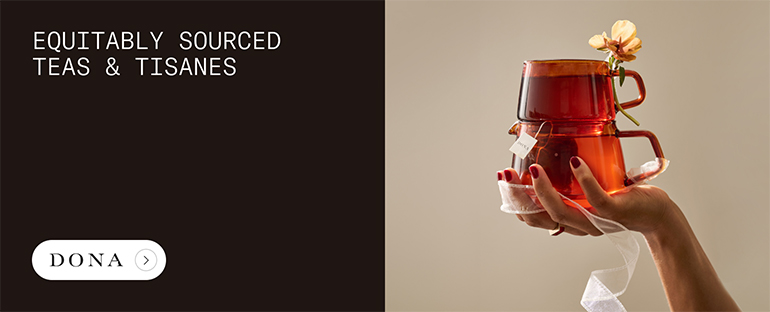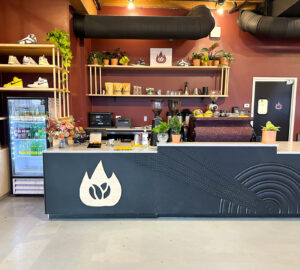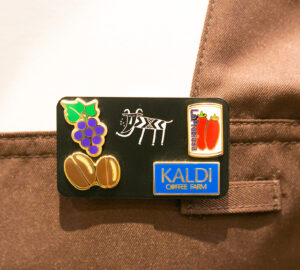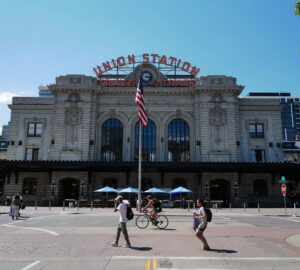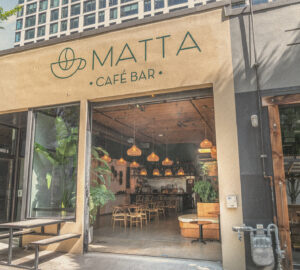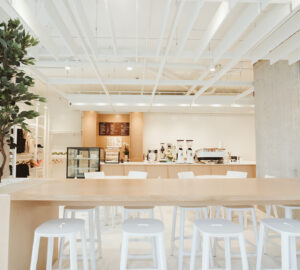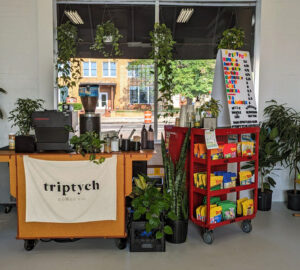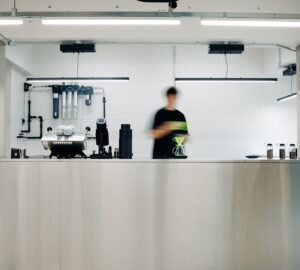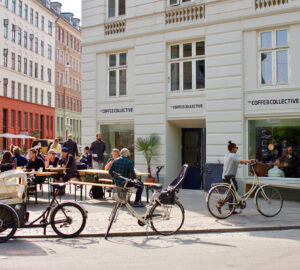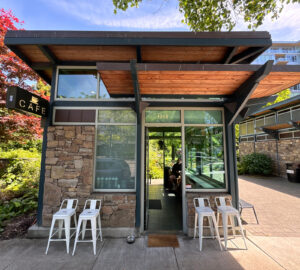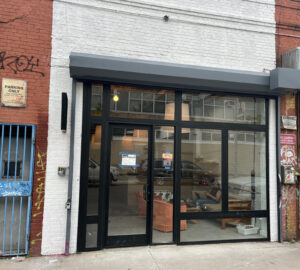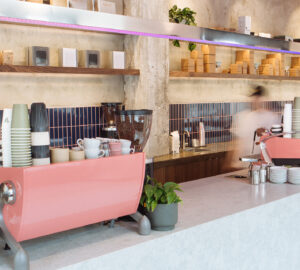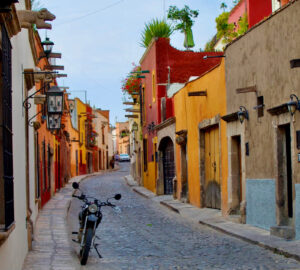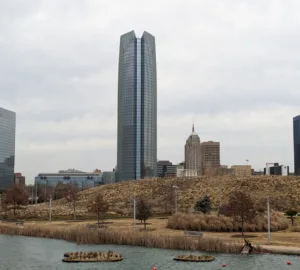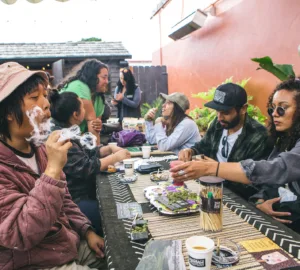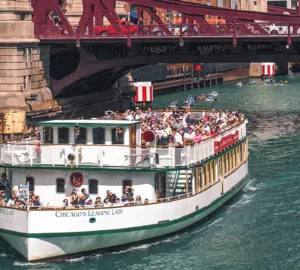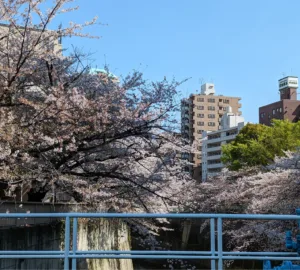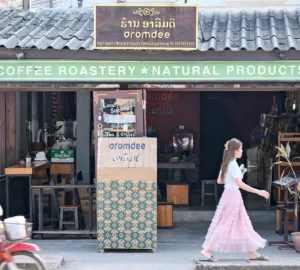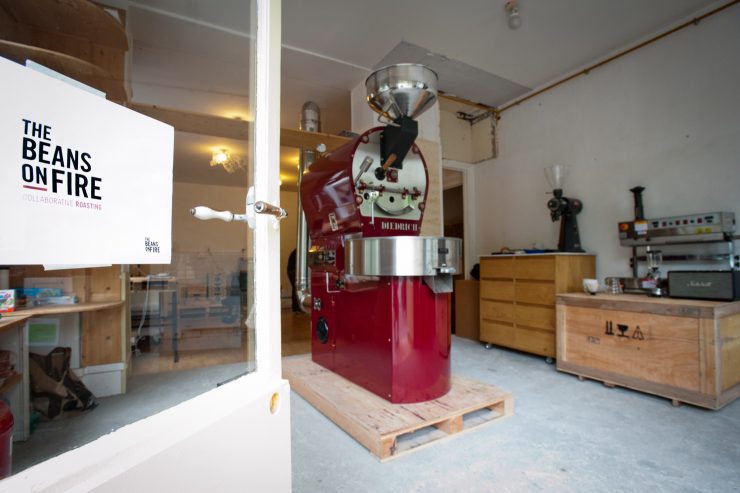
As the Paris specialty coffee scene grows, one thing is sure: more people want in. The first generation of specialty roasters and cafe owners were revolutionaries, paving the way for those who would follow, and they were up against a lot. Talk to any roaster or cafe owner in Paris who has been on the scene for a few years, and they will tell you a story of the complications of getting their business up and running and convincing customers about their product. Now, however, that is starting to change. The general Parisian population is starting to warm to the idea of specialty coffee, and launching a coffee-related business is not as shocking as it once was.
But there are still a few obstacles that stand in the way for aspiring roasters: space and money. Paris is a tightly packed city, where apartments are postage-stamp-sized compared to your average square footage in most of the United States or Australia. And the rent and costs of opening a new business are astronomically high, so if you’re an entrepreneur looking to get into the coffee business, there are many barriers to entry.
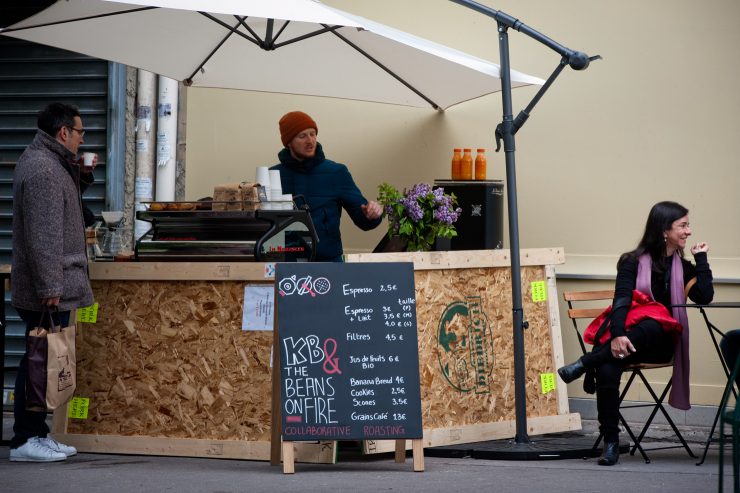
Inspired by coffee culture, both in other countries and in Paris, Andrés Hoyos-Gomez decided to do something to change that—he and his business partner, Maria Hernandez, would launch a collaborative coffee roasting venture, The Beans on Fire.
The idea behind The Beans on Fire is to create a kind of coffee incubator for Paris, allowing people not only the space and equipment to get into coffee roasting, but the chance to come and take classes, take part in cuppings, and in general, discover the world of coffee.
I first met Hoyos-Gomez earlier this year at the French AeroPress Championships. I was inspired by his excitement and passion for his project. Originally from Colombia, Hoyos-Gomez had spent his professional career thus far as a consultant at McKinsey & Company, and decided it was time for a change. In his last year of work, his job took him around the world, and along the way he visited many coffee capitals. He told me that he was inspired by not only the coffee culture in places like Australia and the United States, but that he was especially compelled by all the projects he came across where people were working collaboratively. Be it a co-working space or crowdfunding a project, he was intrigued by the idea of doing things as a community rather than as individuals, and he wanted to do something in the same vein.
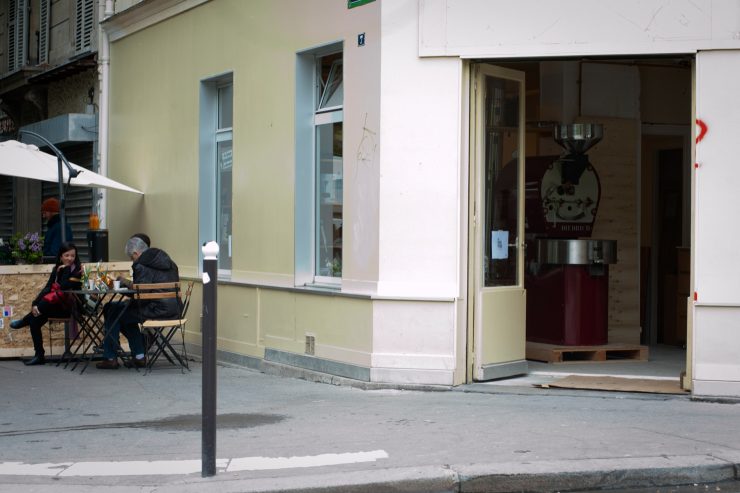
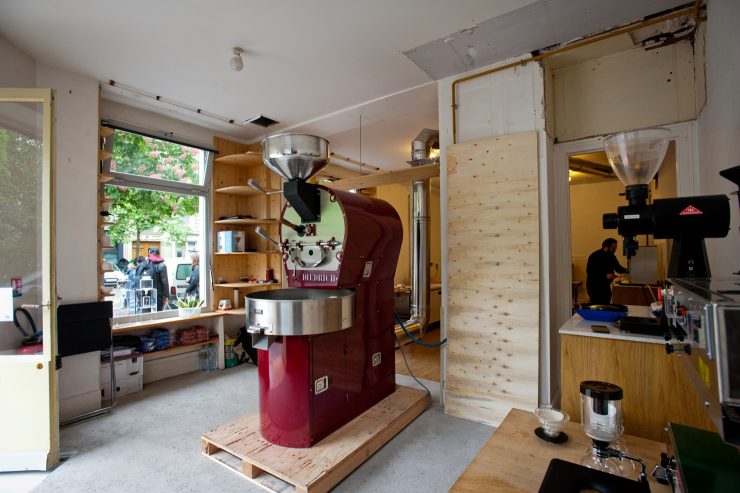
In the 11th arrondissement (not far from the popular Cafe Chilango—which before they moved into the official Beans on Fire space, Hoyos-Gomez often refers to as their “office,” and where we first met to chat about his project) the Beans on Fire team renovated an old Italian restaurant into a roasting facility and cafe. When I visited at the end of April, they were just preparing to open the outdoor part of the cafe, which is situated on the corner, overlooking the park across the street. The corner is spacious and airy, something that not all Parisian street corners have going for them. Partnering up with KB Cafe to manage the cafe operations, the idea is to showcase the coffees roasted in the space. “People can come, have a coffee, then they understand,” says Hoyos-Gomez.
Hoyos-Gomez plans to not only rent the roasting space for fixed sessions, but also to provide training sessions for people who want to learn how to roast. “The point is to have a portfolio of trainers,” says Hoyos-Gomez, pointing out that they will bring in people from Diedrich (the roasting machine on hand) as well as other coffee professionals from the industry.
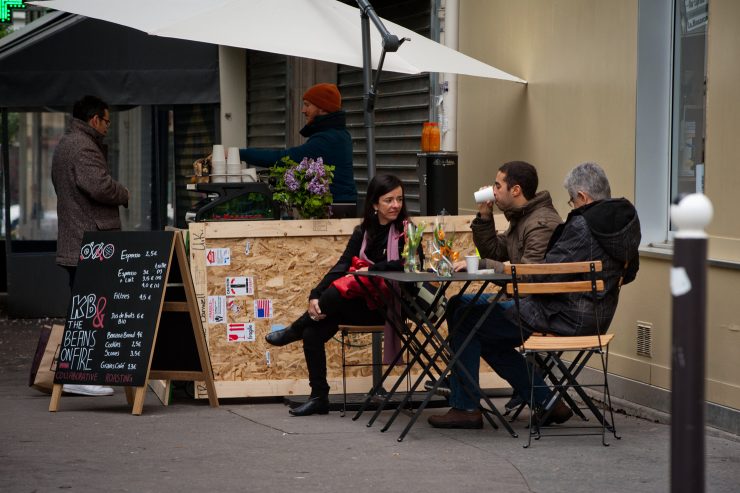
But while this may all sound targeted towards the professional coffee world, what Hoyos-Gomez is really excited about is the potential to get general consumers excited about the world of coffee. “I would really love it to be open,” says Hoyos-Gomez.
The other benefit that a collaborative roasting facility will bring is of course diversity. “The range can be quite big,” says Hoyos-Gomez, referring to both the number of roasters, but also the number of coffees that they will be able to offer in the cafe. The idea is that every bag of beans sold at The Beans on Fire, the name of the individual roaster will be marked, as well as the name of the producer and the name of the “composer,” the title Hoyos-Gomez uses to refer to the person that knows the coffee and can consult on the roast. The goal is to make the coffee more individualized, to point out to customers that it’s not just a bag of coffee, but individuals put time into making the product—collaboratively.
Roasters who roast their own brand of coffee at The Beans on Fire will be able to use their own packaging, but will be marked with a The Beans on Fire logo or sticker, to show that they are part of the collaborative effort. Anyone that roasts in the facility will also share their roasting data on Cropster. Part of taking part in The Beans of Fire is “the benefit and the duty to share,” says Hoyos-Gomez.
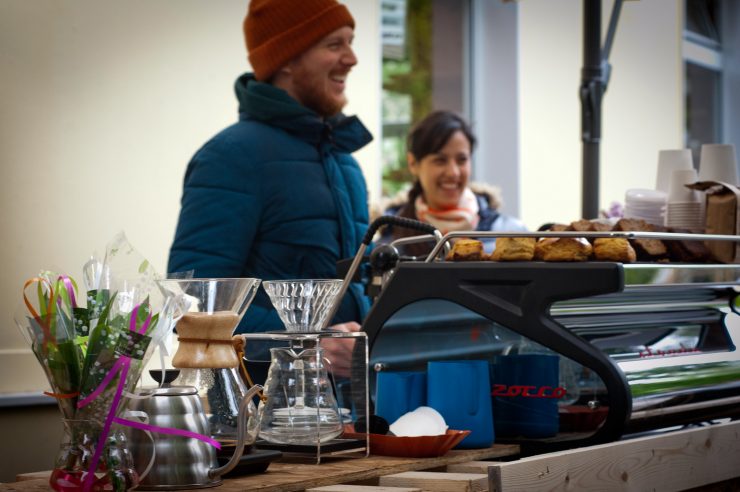
I asked Hoyos-Gomez about his thoughts on social ventures from the perspective of a businessman. “I don’t think it should be different, the social element from the business element,” he says. “What we do has a social element, if people are interested in it, they will buy it.” More importantly, it’s only recently that we in the Western world have become so individualistic in our business endeavors, and still today “this kind of model exists around the world in many shapes,” says Hoyos-Gomez. “In this sense it’s not new.”
For Hoyos-Gomez, he hopes the venture can be social and economically stimulating: allowing smart individuals with a lot of potential, but maybe not the economic means, to get into the world of roasting, and to continue to support the growing Paris coffee community—working together for a common aim—in the process.
Anna Brones (@annabrones) is a Sprudge.com staff writer based in Paris, the founder of Foodie Underground, and the co-author of Fika: The Art Of The Swedish Coffee Break, available now from Ten Speed Press. Read more Anna Brones on Sprudge.
All photos by Luc Revel.














